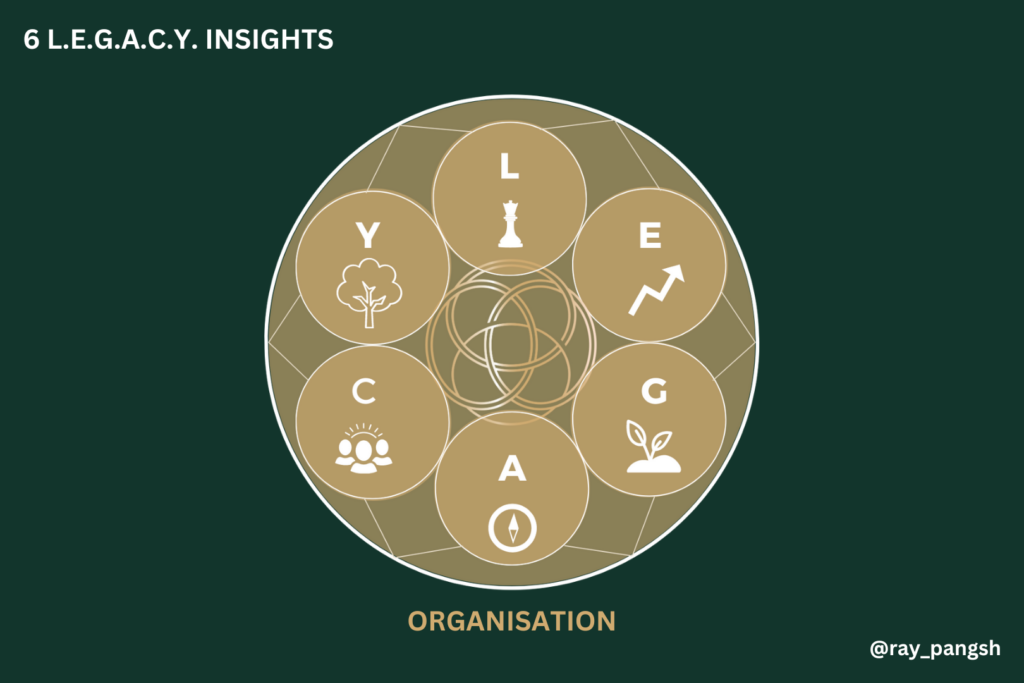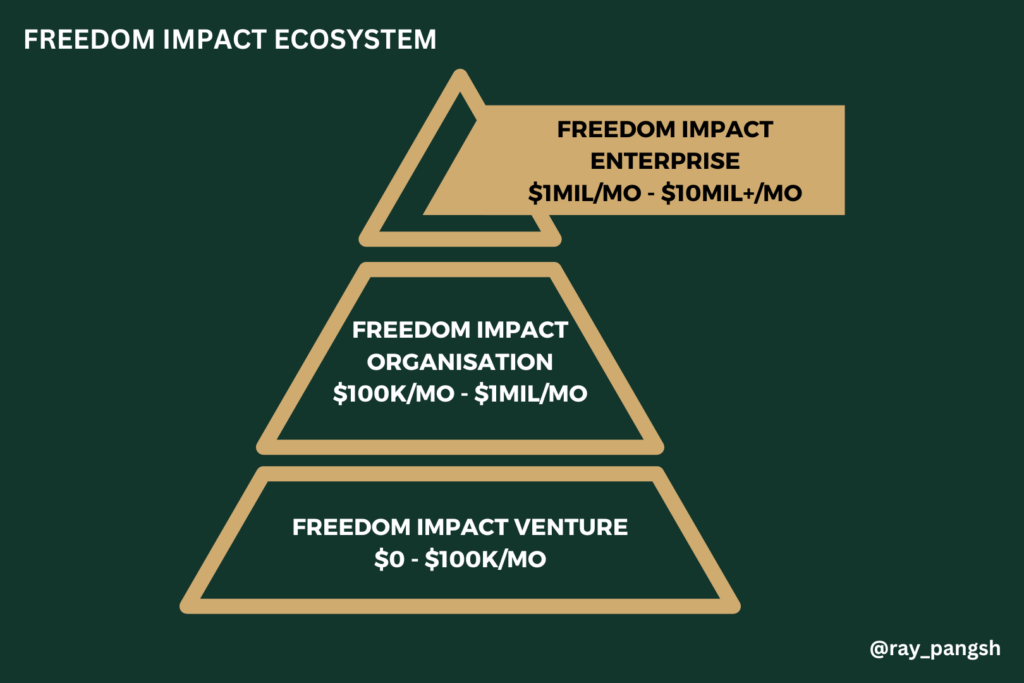Master Sales Techniques
Unlock The Power Of Emotional Intelligence: Deepen Connections and Win More Clients

In today’s highly competitive business landscape, the key to standing out and winning more clients lies in building deeper connections and fostering trust. Emotional Intelligence (EQ), a concept introduced by psychologists Peter Salovey and John D. Mayer (1990), and popularized by psychologist and author Daniel Goleman (1995), has emerged as an essential skill set for achieving this. By leveraging EQ, sales professionals can forge lasting relationships, adapt to clients’ unique needs, and ultimately grow their businesses.
This article explores the power of Emotional Intelligence within the context of the Transformational Sales Philosophy, providing insights and strategies for unlocking your EQ potential and thriving in your sales career.
The Importance of Emotional Intelligence in Sales
Emotional Intelligence, defined as the ability to recognise, understand, and manage our own emotions as well as empathise with the emotions of others, plays a crucial role in the sales process. According to a study by TalentSmart, EQ is responsible for 58% of job performance across various industries, with 90% of top performers possessing high EQ. In sales, where interpersonal interactions and relationship-building are critical, EQ is indispensable.
The Transformational Sales Philosophy
At its core, the Transformational Sales Philosophy is centered around creating meaningful, lasting relationships with clients. It focuses on understanding clients’ needs, emotions, and desires, and using this knowledge to provide tailored solutions that resonate with them. By harnessing the power of EQ, sales professionals can adopt this client-centric approach and experience unparalleled success.
5 Key EQ Skills for Mastering the Transformational Sales Philosophy
1. Active Listening
Active listening is an essential skill for building trust and gaining a deep understanding of client’s needs. It involves being fully present, avoiding distractions, and seeking clarification when needed. A study by Korn Ferry found that active listening is a key predictor of sales success. By actively listening, you can gather valuable insights, identify pain points, and craft compelling solutions.
Tips and Tricks to Become a Master at Active Listening
2. Empathy
Empathy, the ability to put oneself in another’s shoes and understand their feelings, is crucial for establishing strong emotional connections with clients. In a survey conducted by the Harvard Business Review, empathy was identified as one of the top skills needed for effective leadership. In sales, empathy enables you to better address clients’ concerns and tailor your approach to their unique needs.
3. Self-Awareness
Being self-aware means understanding your own emotions, biases, and triggers, and recognizing how they influence your interactions with clients. A study by Green Peak Partners and Cornell University found that self-aware leaders are more successful and adaptable. In sales, self-awareness allows you to manage your emotions effectively, resulting in improved communication and decision-making.
4. Adaptability
The ability to embrace change and adapt your approach to clients’ evolving needs is vital for success in sales. According to research conducted by the World Economic Forum, adaptability is one of the top skills needed to thrive in the future workforce. By being adaptable, you can provide tailored solutions that resonate with clients, ensuring lasting relationships and repeat business.
5. Problem-Solving
Effective problem-solving involves using your EQ skills to identify and propose solutions that align with clients’ emotions and needs. A study by the American Management Association revealed that problem-solving is one of the most sought-after skills in the workplace. In sales, honing your problem-solving abilities enables you to address clients’ concerns and demonstrate your value as a trusted partner.
How To Implement Emotional Intelligence in the Transformational Sales Process
Now that we’ve identified the five key EQ skills crucial to the Transformational Sales Philosophy, let’s explore how to incorporate them into your sales process to deepen connections and win more clients.
Step 1: Research and Preparation
Before engaging with a potential client, conduct thorough research to understand their industry, company culture, and unique challenges. This information will help you better empathize with the client and tailor your approach to their specific needs. Also, assess your own emotional state and be mindful of any biases or triggers that could influence your interactions.
Step 2: Establish Rapport and Build Trust
From the initial interaction, focus on building rapport and trust with the client by actively listening, demonstrating empathy, and showing genuine interest in their needs. Use open-ended questions to encourage clients to share their concerns and desires, and validate their emotions to foster a strong emotional connection.
Learn How To Build Rapport and Why it’s the Secret Sauce to Long-Term Client Success From Ray
Step 3: Present Tailored Solutions
Leverage your EQ skills to propose solutions that resonate with the client’s emotions and address their pain points. Use your understanding of their needs, combined with your industry expertise, to craft a compelling and personalized proposal. Ensure your communication is clear, concise, and emotionally engaging.
Step 4: Overcome Objections and Close the Deal
When faced with objections, employ empathy and active listening to understand the client’s concerns. Address these concerns with tailored responses, showcasing your adaptability and problem-solving skills. By effectively managing your emotions and maintaining a client-centric approach, you’ll be better equipped to close the deal and secure a long-term relationship.
Step 5: Post-Sale Relationship Management
The Transformational Sales Philosophy emphasizes the importance of nurturing relationships even after a sale is made. Continue to engage with clients, actively listen to their feedback, and adapt your solutions as their needs evolve. By demonstrating ongoing commitment and support, you’ll strengthen your connection and position yourself as a trusted partner.
Emotional Intelligence is a game-changer for sales professionals seeking to deepen connections and win more clients. By mastering EQ skills such as active listening, empathy, self-awareness, adaptability, and problem-solving, you can adopt the Transformational Sales Philosophy and experience unparalleled success in your sales career.
By focusing on creating meaningful, lasting relationships and providing tailored solutions that resonate with clients, you’ll not only grow your business but also contribute to a more empathetic and emotionally intelligent business landscape.
Ray Pang SH has generated over USD$1.215mil for his business using the Transformational Sales Methods he discussed above and in his other articles on A2S.
Want to work with him and become one of the 125+ business owners he has helped generate over USD$12.154mil in sales for? Go to his Instagram here and DM him the word “LEGACY” to learn how he can revolutionise your business now.
Change Your Mindset
The Art of Convincing: 10 Persuasion Techniques That Really Work
The knack for persuading others can act as a catalyst for change, open doors, forge alliances, and effect positive change

Persuasion is not as complicated as it may sound. In fact, it is something that we have been practicing since childhood. Do you remember convincing your parents to let you skip school, asking your teacher not to assign homework, or persuading your boss to give you a day off? Well, these are just small examples of what persuasion looks like. (more…)
Change Your Mindset
The 6 L.E.G.A.C.Y. Insights: Building A Holistic Approach To Business

In the complex and rapidly evolving landscape of modern business, innovative models are the need of the hour to navigate challenges and maintain sustainable growth. Inspired by the metaphor of the ‘Earth as a Cosmic Playground’, the LEGACY Impact System has emerged as a beacon of guidance, interconnecting six crucial business elements to create a comprehensive roadmap towards sustainable success.
LEADERSHIP – Conscious Leadership
Simon Sinek, a world-renowned optimist and visionary, once stated, “Leadership is not about being in charge. It is about taking care of those in your charge.” Conscious leadership embodies this principle, prioritising awareness of the broader implications and ripple effects of decisions on the organisation, its stakeholders, and the environment.
Action Steps:
- Leadership Training: One of the foundational steps towards conscious leadership is investing in leadership development programs that highlight ethical decision-making, environmental stewardship, and social responsibility. These training programs should encompass elements such as emotional intelligence, transparency, empathy, and long-term thinking, equipping leaders to guide their teams towards sustainable growth.
- Stakeholder Engagement: Conscious leaders also emphasise consistent and open dialogue with stakeholders. By incorporating stakeholders’ insights into decision-making processes, leaders can ensure they’re addressing the needs and concerns of those impacted by the organisation’s operations.
EVOLUTION – Adaptability
Like the ever-evolving cosmos, businesses must be capable of change and evolution. Albert Einstein’s wisdom encapsulates this requirement: “The measure of intelligence is the ability to change.” In the fast-paced business world, adaptability becomes an essential survival trait, fostering resilience and agility.
Action Steps:
- Innovation Encouragement: Businesses can nurture adaptability by creating an environment that celebrates innovation, rewards creative problem-solving, and supports calculated risk-taking. This could involve implementing an open-door policy for ideas, organising brainstorming sessions, or establishing an innovation hub within the organisation.
- Technology Integration: Keeping abreast of technological advancements and incorporating them into business processes is another critical step. This proactive approach not only optimises operations but also positions the organisation as a forward-thinking player in the industry.
GROWTH – Continuous Learning and Development
Motivational speaker and writer Leo Buscaglia said, “Change is the end result of all true learning.” In the realm of business, this translates into the equation ‘continuous learning equals continuous growth’. Organisations that champion a culture of ongoing learning and development are well-positioned to thrive.
Action Steps:
- Employee Training: Regular training and development opportunities should be provided to employees to update their skills and stay abreast of industry trends. This can range from skills-based workshops and webinars to providing resources for self-learning and personal development.
- Learning Culture: Promoting a culture that values learning and improvement at all levels of the organisation is crucial. This can be achieved by recognising and rewarding learning initiatives, encouraging feedback, and fostering an atmosphere of open communication.
ALIGNMENT – Holistic Approach to Business and Value-Based Marketing
Renowned systems scientist Peter Senge stated, “Alignment is the prerequisite for effectiveness.” Taking inspiration from the cosmos, where every element is harmoniously aligned, businesses should ensure all aspects of their operations align with their core mission and values.
Action Steps:
- Internal Alignment: To ensure coherence between what a business says and does, internal processes, practices, and culture should reflect the organisation’s mission and values. This includes aligning recruitment and management practices, employee benefits, and internal communication with the organisation’s core ethos.
- External Alignment: Similarly, marketing, customer service, and branding strategies should resonate with the organisation’s values. Authentic alignment in these areas fosters trust among stakeholders and differentiates the business in a competitive marketplace.
Ready to Learn to Unlock The Power of Emotional Intelligence and Win More Clients?
COMMUNITY – Community Building
Civil rights activist Coretta Scott King once stated, “The greatness of a community is most accurately measured by the compassionate actions of its members.” This statement holds significant relevance for modern businesses, underlining the importance of community-building among stakeholders.
Action Steps:
- Stakeholder Inclusion: Businesses can foster community by including stakeholders in decision-making processes, fostering a sense of ownership and engagement. This can be facilitated through town-hall meetings, feedback sessions, and collaborative projects.
- Engagement Initiatives: Launching initiatives that promote interaction and collaboration among stakeholders can further strengthen community bonds. These initiatives can range from team-building activities and social events to forums for sharing ideas and challenges.
YIELD – Sustainability and Technology Integration
Danish architect Bjarke Ingels pointed out that sustainability should not be viewed as a sacrifice but as a design challenge. Businesses, similarly, should see sustainability as an essential aspect of their design and operational strategies, not as an afterthought.
Action Steps:
- Sustainable Practices: By incorporating sustainability into every facet of business operations, from product design and manufacturing to supply chain management and waste disposal, businesses can make a positive impact on the environment and society.
- Tech-driven Sustainability: Technology offers a myriad of ways to enhance sustainability. By harnessing technology to optimise resource use, reduce energy consumption, or streamline processes, businesses can demonstrate their commitment to sustainable practices.

In conclusion, the 6 L.E.G.A.C.Y. Insights offer a holistic and actionable guide for businesses looking to navigate the complexities of today’s dynamic business landscape. By integrating conscious leadership, adaptability, continuous learning and development, alignment, community building, and sustainability into their day-to-day operations, organisations can achieve sustainable growth and contribute positively to the larger cosmic playground.
Ray Pang SH has generated over USD$1.216mil for his business using the Transformational Sales Methods he discussed above and in his other articles on A2S.
Want to work with him and become one of the 125+ business owners he has helped generate over USD$12.164mil in sales for? Go to his Instagram here and DM him the word “LEGACY” to learn how he can revolutionise your business now.
Want to Master Sales? Find out what it takes for you to become a master salesman
Change Your Mindset
The Global Freedom Initiative: Revolutionising freedom, legacy, and impact

In our hyper-connected era, the interpretation of concepts like freedom, truth, and self-expression bear profound implications. Amidst a symphony of diverse viewpoints, a revolutionary philosophy has crystallised, offering a distinctive compass to traverse the intricate labyrinth of human existence — The Global Freedom Initiative. This initiative isn’t merely a collage of thoughts; it’s a rallying cry for a paradigm shift, recognising the deep interconnection of life and promoting a world filled with limitless freedom, infinite love, and genuine self-expression.
In a world marred by conflict, ecological decay, and societal disparity, the mission of the Global Freedom Initiative rings louder than ever. By nurturing a global tribe dedicated to human evolution, the initiative envisions a world where Unconditional Love serves as the default emotional state.
Cultivating World-Changers
The heart of the Global Freedom Initiative beats in transcending conventional notions of business, wealth, and personal development. It strives to foster a dynamic Freedom Impact Ecosystem, merging individuals and businesses in a unified quest for a world that celebrates authenticity, where love is unbounded, and freedom is an innate right. These philosophy anchors on the ‘Creator Being’ concept, recognising our capacity to shape reality and influence our surroundings.
As the esteemed physicist Albert Einstein once stated, “Imagination is everything. It is the preview of life’s coming attractions.” This potent quote encapsulates the essence of a ‘Creator Being’ – an individual whose thoughts, intentions, and actions have the power to shape their reality and impact their environment. This acknowledgment of our inherent creative potential is the bedrock of the Global Freedom Initiative.
The Quest for True Freedom
A 2020 Pew Research Center survey revealed that nearly 60% of adults worldwide expressed dissatisfaction with their country’s current state, hinting at a global thirst for transformation. The Global Freedom Initiative quenches this thirst by presenting an evolutionary journey starting with self-awareness cultivation and climaxing in ‘True Freedom’ – a state of existence that embraces the human experience unencumbered by repression, resistance, and rejection.
Negative emotions like shame, guilt, fear, and anger often inhibit personal and societal evolution. Brene Brown, a research professor at the University of Houston, wisely noted, “Shame corrodes the very part of us that believes we are capable of change.” The Global Freedom Initiative proposes a transformative response to these emotions, advocating for their acknowledgment, processing, and release to foster personal liberation and nurture a more empathetic and inclusive society.
Reimagining Business as a Catalyst for True Freedom
The Global Freedom Initiative underscores the reframing of business as a conduit for social impact and personal legacy. It proposes a radical shift in our perception of business, presenting it not merely as a profit-oriented entity but as a potent platform for societal evolution and personal self-expression. This perspective dovetails with the rising trend of impact investing. According to the Global Impact Investing Network, impact investing assets amounted to $715 billion in 2020, signalling an increasing recognition of the role businesses can play in steering societal transformation.
To support The Global Freedom Initiative, we must appreciate the significance of individual, owner, and investor contributions to the business sphere. Business is an outward reflection of our inner quest, our mission of Truth, mirroring our fullest expression of Self in driving change and impacting the world.
For a business to be sustainable and impactful, it must satisfy two primary pillars:
- A business should drive social impact and contribute to societal evolution, for the Greater Good Of All
- A business should have the necessary structure for one’s LEGACY and Truth to flow within, as this impact will voice your inner Truth mission to change the world
This defines a Freedom Impact Business.
Three tiers contribute to a Freedom Impact Ecosystem:
- $0 – $100k/mo (Freedom Impact Venture)
- $100k/mo – $1mil/mo (Freedom Impact Organisation)
- $1mil/mo – $10mil+/mo (Freedom Impact Enterprise)

Moreover, the Global Freedom Initiative rethinks the definition of business success. It posits that a truly prosperous business drives economic growth, contributes positively to society, and facilitates personal growth. This perspective aligns with a McKinsey & Company study, suggesting that long-term performance-focused companies demonstrate superior financial outcomes while contributing to societal well-being.
Charting the Future: What Does This Mean For You?
At the core of the Global Freedom Initiative is the conviction that personal growth and societal evolution are inherently linked. As we progress towards personal freedom, we indirectly contribute to societal transformation. This philosophy resonates with the wisdom of celebrated philosopher and writer, Aldous Huxley, who stated, “There is only one corner of the universe you can be certain of improving, and that’s your own self.”
The Coaching / Consulting Industry plays an instrumental role in the Global Freedom Initiative, bridging the gap between traditional education and a more holistic approach encompassing body, mind, and spirit. This aligns with the United Nations’ Sustainable Development Goal 4, advocating for “inclusive and equitable quality education and lifelong learning opportunities for all.”
Ultimately, the Global Freedom Initiative underscores the power of community and collective action. It believes that each one of us can contribute to a world where freedom, love, and authenticity are paramount. This community-oriented approach resonates with Margaret Mead’s wisdom, a renowned anthropologist, who famously stated, “Never doubt that a small group of thoughtful, committed citizens can change the world; indeed, it’s the only thing that ever has.”
In conclusion, the Global Freedom Initiative offers a transformative philosophy responding to the profound call for societal transformation and personal growth. It champions the creation of a world where every individual is empowered to live in alignment with their truths and contribute to humanity’s collective evolution. As we steer through the complexities of the 21st century, such philosophies serve as beacons of hope, offering a roadmap for constructing a more inclusive, compassionate, and authentic world.
Ray Pang SH has generated over USD$1.215mil for his business using the Transformational Sales Methods he discussed above and in his other articles on A2S.
Want to work with him and become one of the 125+ business owners he has helped generate over USD$12.154mil in sales for? Go to his Instagram here and DM him the word “LEGACY” to learn how he can revolutionise your business now.
Ready to become a master salesperson? Learn how to master the art of active listening
Master Sales Techniques
How To Build Rapport: The Secret Sauce to Long-Term Sales Relationships

In the fast-paced world of sales, it’s not just about closing deals, but rather, building long-lasting relationships with your clients. At the heart of this process lies the ability to establish rapport – the secret sauce to long-term sales success. This article explores the Transformational Sales Philosophy, a relationship-focused approach to sales, and provides insights and actionable tips to help you master the art of rapport-building.
What is the Transformational Sales Philosophy?
The Transformational Sales Philosophy is a sales approach that prioritises building authentic, meaningful relationships with clients over simply making a transaction. This philosophy shifts the focus from short-term gains to long-term success, recognising that the most effective salespeople are those who can establish trust, provide value, and genuinely connect with their clients.
Building Rapport: The Secret Sauce to Long-Term Sales Relationships
1. Active Listening
Active listening is the cornerstone of rapport-building. This involves not only hearing the words your clients say but genuinely understanding their needs, goals, and pain points. By asking open-ended questions, giving your clients your full attention, and demonstrating empathy, you can develop a deeper understanding of their situation and tailor your offerings accordingly.
According to a study by the Harvard Business Review, active listening can increase the likelihood of closing a deal by 32%. Furthermore, research shows that salespeople who excel at active listening are more likely to establish trust and long-lasting relationships with their clients.
2. Finding Common Ground
People are naturally drawn to those who share similar interests, experiences, or values. Identifying common ground helps bridge the gap and create a sense of connection between you and your clients. In fact, a study published in the Journal of Personal Selling & Sales Management found that salespeople who can establish common ground are more successful in building rapport and closing deals.
3. Authenticity
Authenticity is the key to building trust and long-lasting relationships in sales. Clients can sense when you’re being genuine and are more likely to do business with someone they perceive as honest and transparent. A study published in the journal Business Horizons found that authenticity is a critical factor in fostering customer trust and loyalty.
4. Adapting Your Communication Style
Effective communication is essential for rapport-building, and this involves adapting your style to match your clients’ preferences. Some clients may prefer a more formal approach, while others may appreciate a casual, friendly tone. By tailoring your communication style, you can create a comfortable environment for both parties and pave the way for a deeper connection.
5. Follow Up and Nurture Relationships
Building rapport doesn’t end with the initial interaction. Consistent follow-ups, expressing gratitude, and providing value through resources and relevant content are crucial to nurturing the relationship. Research shows that staying in touch with your clients, even after the sale, can lead to repeat business, referrals, and ultimately, long-term success.
Ready to Learn to Unlock The Power of Emotional Intelligence and Win More Clients?
A Practical Guide to Rapport-Building
Now that we’ve explored the key elements of rapport-building, let’s dive into some actionable tips to help you incorporate these strategies into your sales process.
1. Practice Active Listening
- Ask open-ended questions that encourage your clients to share their thoughts, feelings, and needs
- Pay attention to non-verbal cues, such as body language and facial expressions, to better understand your clients’ emotions and concerns
- Take notes during your conversations to demonstrate your commitment to understanding their needs and to remember important details for future interactions
2. Identify Common Ground
- Research your clients’ backgrounds, interests, and professional history to identify potential areas of common ground
- Look for opportunities to discuss shared experiences or interests during your conversations
- Leverage common ground to create a sense of connection and understanding between you and your clients
3. Be Authentic
- Be transparent about your intentions, offerings, and capabilities
- Share personal stories and experiences to humanise yourself and connect with your clients on a deeper level
- Avoid overpromising or exaggerating your offerings to build trust and credibility
4. Adapt Your Communication Style
- Observe your clients’ preferred communication methods, such as email, phone calls, or face-to-face meetings, and adapt accordingly
- Pay attention to the tone and language they use and adjust your own communication style to match
- Consider the cultural and personal preferences of your clients to ensure your communication style is respectful and appropriate
5. Follow Up and Nurture Relationships
- Schedule regular check-ins to discuss your clients’ ongoing needs, progress, and satisfaction
- Share relevant resources, articles, and insights that can help your clients achieve their goals
- Celebrate their successes and express gratitude for their business to foster a sense of loyalty and appreciation
By embracing the Transformational Sales Philosophy and focusing on rapport-building, you can establish strong, long-lasting relationships with your clients that lead to long-term sales success. Remember, the secret sauce to thriving in sales is not just about closing deals but cultivating trust, providing value, and genuinely connecting with your clients. Apply these insights and tips to your sales process, and watch your relationships – and your sales – flourish.
Ray Pang SH has generated over USD$1.215mil for his business using the Transformational Sales Methods he discussed above and in his other articles on A2S.
Want to work with him and become one of the 125+ business owners he has helped generate over USD$12.154mil in sales for? Go to his Instagram here and DM him the word “LEGACY” to learn how he can revolutionise your business now.
Ready to become a master salesperson? Learn how to master the art of active listening
-

 Did You Know4 weeks ago
Did You Know4 weeks ago7 Surprising Life Lessons Video Games Taught Me That School Never Did
-

 Success Advice4 weeks ago
Success Advice4 weeks agoHow to Build Trust, Kill Micromanagement, and Lead a Team That Thrives
-

 Success Advice3 weeks ago
Success Advice3 weeks agoSuccess Isn’t Sexy: 5 Daily Habits That Actually Work
-

 Scale Your Business4 weeks ago
Scale Your Business4 weeks agoHow to Build a Workplace People Actually Want to Show Up To
-

 Scale Your Business3 weeks ago
Scale Your Business3 weeks agoHow Smart Entrepreneurs Cut Financial Chaos in Half with One Simple Switch
-

 Success Advice3 weeks ago
Success Advice3 weeks agoBreaking the Bias: How Females Can Thrive In The Workplace in 2025
-

 Scale Your Business3 weeks ago
Scale Your Business3 weeks agoThis Is How Successful Entrepreneurs Manage Their Time Differently
-

 Change Your Mindset3 weeks ago
Change Your Mindset3 weeks agoThe Leadership Skill Nobody Talks About (But Changes Everything)

















